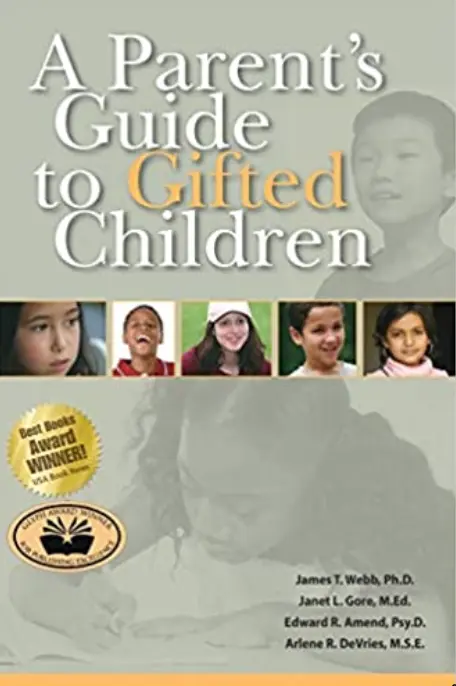A Parent's Guide to Gifted Children
By James T. Webb, Ph.D, Janet L. Gore, M.Ed.,
Edward R. Amend, Psy.D, and Arlene R. DeVries, M.S.E.
Parenting Book Review by David Rodgers

A Parent's Guide to Gifted Children contains useful information for those parenting or grand-parenting a typical child, a smart child, or a gifted child. In fact, the book is useful even to those without any parenting responsibilities if they are interested in replaying their own childhood through an adult lens.
The book is divided into a Preface, Introduction, 15 Chapters, Endnotes, two Appendices (Resources and Suggested Readings), References, and a complete Index. The Table of Contents is particularly useful for identifying key issues. Coverage is coherent, comprehensive, clear, seamless, practical, and succinct. Most chapters have a section devoted to practical advice. I found the embedded table and list summaries of important concepts a good way to keep track of main threads of the discussion. It was refreshing to read sections where the authors explained points of view that didn't agree with their own.
The book presumes no prior background and opens with discussion of what is "giftedness" and the common characteristics of gifted children. The differences between children who are smart and those who are gifted are described. The phenomena of multiple intelligences is highlighted. There is a good discussion of whether giftedness is inherited (i.e., nature vs. nurture) and ways by which it can be evaluated.
Communication as key to relationships and the role that feelings play in developing self-confidence and self-esteem when a child is unusually sensitive, intense, and intelligent are underscored. The Maslow hierarchy of needs is explained as the foundation for a discussion about motivation, enthusiasm, and underachievement. Building upon a chain of successes, of catching the child doing something right-frequently, is the roadmap to confidence and success. Establishing discipline-as distinct from punishment, and teaching self-management are identified as two essential tasks for good parenting and especially for parenting gifted children.
With this as background, the remaining chapters deal with intensity, perfectionism, and stress; idealism, unhappiness, and depression; acquaintances, friends, and peers; family relationships: siblings and only children; values, traditions, and uniqueness; complexities of successful parenting; children who are twice-exceptional (e.g., ADD/ADHD, Asperger's Disorder, learning disabilities); how schools identify gifted children; finding a good educational fit; and finding professional help.
It is easy to recommend this book as both a how-to and reference manual.
A Parent's Guide to Gifted Children
TheParentVine.com earns a commission on products purchased.
About Us-
Contact Us -
Privacy Policy©2023 TheParentVine.com a brand owned by GADL Enterprises, LLC. All rights reserved.
TheParentVine.com earns commissions on products sold.